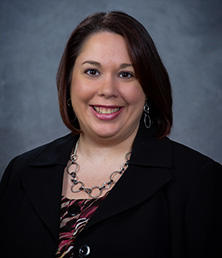On January 18, the U.S. Treasury released its much anticipated final Section 199A regulations of the Tax Cuts and Jobs Act (TCJA), which allows shareholders of Subchapter S banks to take a 20 percent deduction on “qualified business income.” The final rule is better than the proposed rule released in August, but not as beneficial as we had hoped.
Business Categories Defined
To provide clarification, the Treasury issued proposed regulations for the Section 199A deduction in August. These regulations divide businesses into categories: a “qualified trade or business” and a specified service trade or business, or “SSTB.”
Qualified Trade or Business: If a bank is a qualified trade or business, its shareholders qualify for the 199A deduction as long as the shareholder’s taxable income is less than $157,500 (single) or $315,000 (married filing jointly). If the shareholder’s taxable income exceeds the above amounts they still qualify for the 199A if the bank pays enough W-2 wages or has enough cost basis in its asset. Most banks pay enough W-2 wages so exceeding the above income limits will not cause the 199A deduction to be lost.
SSTB: If the bank is a specified service business, its shareholders qualify for the 199A deduction as long as the shareholder’s taxable income is below the above amounts. If the shareholder’s taxable income exceeds the above amounts, the 199A deduction is phased out over the next $50,000 (single) or $100,000 (married filing jointly) of taxable income, and is completely lost if taxable income exceeds $207,500 (single) or $415,000 (married filing jointly).
The regulations provided a de minimis rule that allows a taxpayer to avoid separating out an SSTB if the gross receipts from the SSTB are less than 5% of total gross receipts or less than 10% of total gross receipts if the taxpayer has total gross receipts under $25 million. We had hoped that in the final regulation that these thresholds would go up or be based off of net income. Unfortunately, they remained unchanged.
The statute provides that SSTBs include: most professional services, consulting, financial services, brokerage services, investment or investment management services and dealing in securities.
Receive updates like this by subscribing to our Good $ense Newsletter.
The final rule under Section 199A provides definitions and guidance for the application of the 20 percent deduction, as described below.
“Banking” is Not “Financial Services”
Section 199A states that an SSTB includes any business involved with the performance of financial services. Although the term by itself might seem broad enough to include banking, the definition referenced in the statute was clear that banking was not included. Thus, in general terms, banking is a qualified trade or business and qualifies for the 199A tax deduction.
Income from the Origination and Sale of Mortgages is Qualified Business Income
The proposed regulations stated that an SSTB includes any business that involves the performance of services that consist of trading or dealing in securities.
Under the proposed regulation, banks that sold more than 60 loans sold during the year, or more than 5% of the total principal of loans originated, were considered a dealer in securities, and the profits from the loan sales would have to be tested as an SSTB to determine whether they are de minimis.
The final rule provides that income from the origination and sale of loans, including mortgage loans, is qualified business income and therefore eligible for the deduction under Section 199A. This is a significant, positive change from the proposed regulation.
Investing and Investment Management may need to be broken out as SSTB Income
Under both the proposed and final rules, Section 199A states that an SSTB includes any business that involves the performance of services that consist of investing and investment management. The proposed regulations define this term to mean “a trade or business that earns fees for investment, asset management services, or investment management services including providing advice with respect to buying and selling investments.” It includes a trade or business that “receives either a commission, a flat fee, or an investment management fee calculated as a percentage of assets under management.”
It remains unclear how this would apply to trust or fiduciary services offered by a bank, but for banks that have significant trust operations, this definition could require the bank to break out the SSTB separately from the banking income if the de minimis threshold is exceeded.
Brokerage Services are SSTB income, Insurance agencies are Qualified Business Income
Under both the proposed and final rules, Section 199A also states that an SSTB includes any business involved with the performance of brokerage services. There were questions about whether real estate agencies or insurance agencies were included in this term. The regulations specifically exclude “services provided by real estate agents and brokers, or insurance agents and brokers” from the term “brokerage services.” Rather, “brokerage services” applies in the context of stockbrokers, who arrange transactions between a buyer and seller with respect to securities for a commission or fee.
Is the SSTB a Separate Trade or Business?
Probable yes, but it has to be reported as a separate trade or business. If a bank does exceed the threshold, it may create a separate trade or business for the disqualifying SSTB and thereby preserve its qualified business income from other services. The SSTB trade or business would have to keep separate books and records and have separate employees. Whether it is a separate trade or business, the regulations provide, is a question of fact.
As with any new regulations, it’s important to assess these guidelines in their entirety. Contact a K·Coe Isom advisor with questions surrounding the applicability of the final 199A rules.









